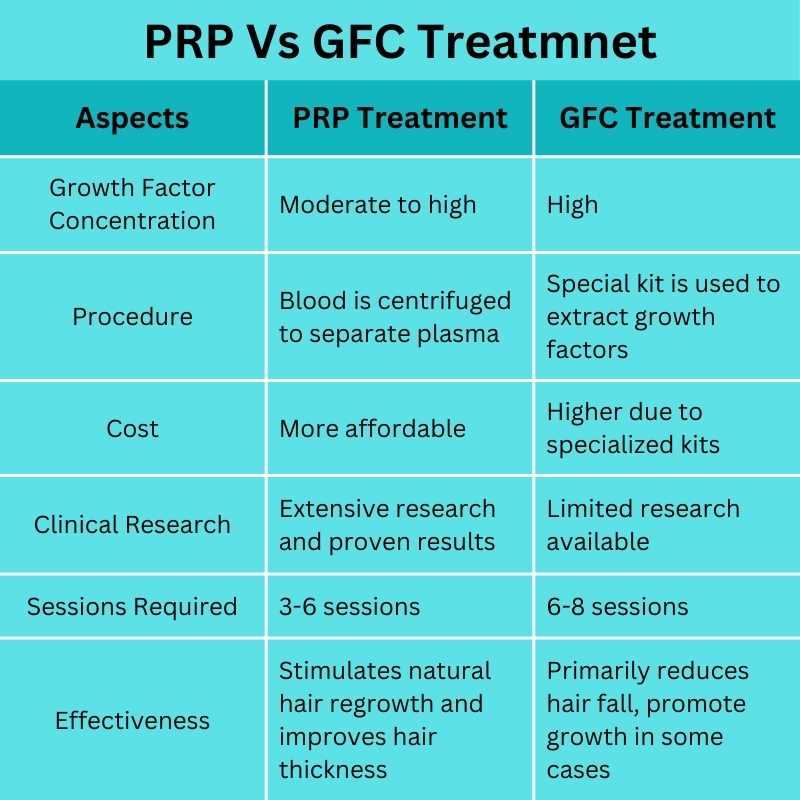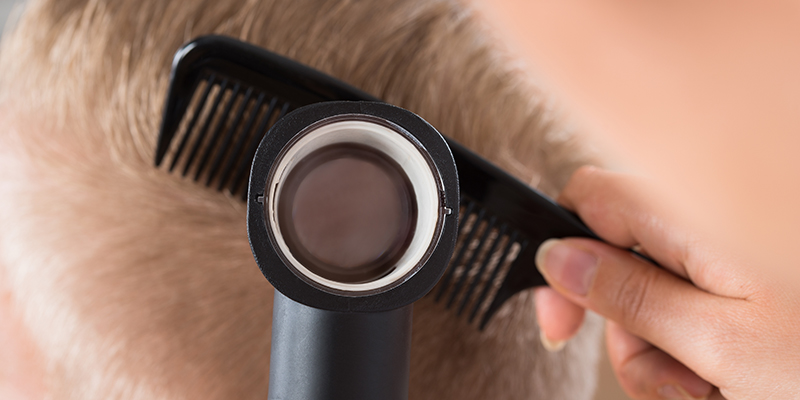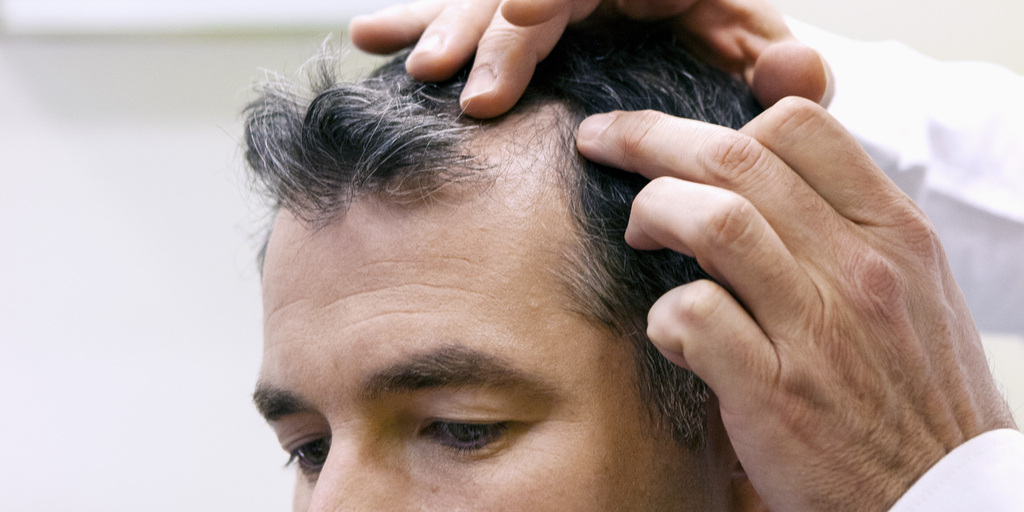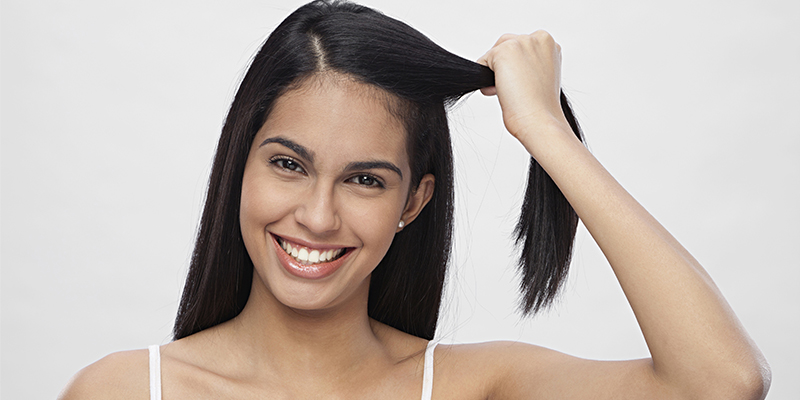Table Of Content
Scalp Exfoliation: Benefits, Techniques & Home Remedies
Exfoliating your scalp is essential for healthier, shinier hair from roots to tips. [1] Scalp exfoliation involves physical or chemical exfoliants to remove extra skin cells, oil, and dandruff. You can make many scalp exfoliants at home using the items available. Read on to learn about the benefits of scalp exfoliation, how to create a scalp exfoliant at home, and how to exfoliate your scalp.
Table Of Content
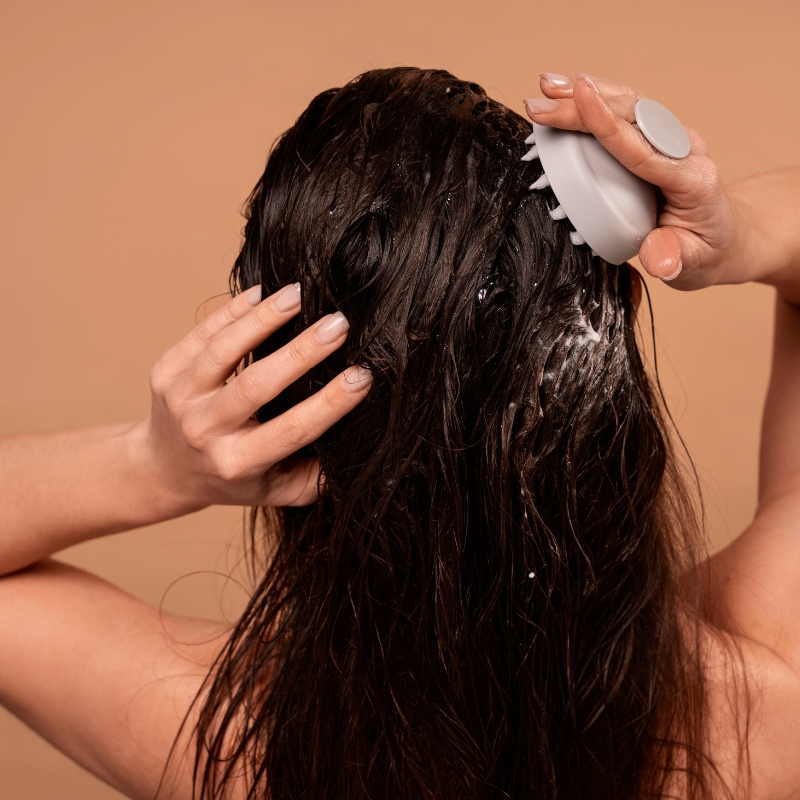
What Is Scalp Exfoliation?
Scalp exfoliation removes dead skin cells, excess oil, and product buildup from the scalp. You can use physical exfoliants like scrubs and brushes or chemical exfoliants with ingredients like salicylic acid to do this. Exfoliating your scalp helps create a healthy environment, boost hair growth, and ease concerns such as dandruff and itchiness.
Benefits of Scalp Exfoliation
Giving your scalp a good scrub can be a relaxing way to de-stress. Curious about its effects on your hair? Keep reading to find out more about the advantages of scalp exfoliation.
-
Improves Hair Growth:
Like your body, exfoliating your scalp helps eliminate dead skin cells, encouraging new cell growth. Scalp exfoliation cleanses the scalp, creating a suitable environment for hair growth. This process cuts down on extra oil, clears up scalp infections, and helps hair products sink deeper into the scalp to boost hair growth.
-
Removes Product Buildup:
Dry shampoo, root volume spray, and even your shampoo can leave residue on your hair. Shampoo cleans your hair well, but stuff can pile up over time. [2] This is where a scalp scrub comes in handy. A scalp scrub does a deep clean and removes dead skin from your scalp and hair.
-
Reduces Dandruff:
Are you dealing with a flaky scalp because of dry, cold weather? Do you have dandruff? [3] If so, one of the best things about exfoliating your scalp is that it can help reduce flaking. Just choose a scrub you like and use it once or twice weekly.
-
Improves Dry Scalp:
People with dry scalp can benefit from scalp exfoliation. You might think scrubbing a dry scalp doesn’t make sense. But the truth is that it removes dead cells and speeds up cell renewal. This process also helps hair oils and masks sink in, which fixes your hair and scalp.
-
Promotes Shinier Hair:
When you scrub your scalp, you clear out the stuff that blocks your hair follicles. Clogged follicles can make your hair grow less healthy. After you clean the follicles, your hair will grow stronger and look shinier.
-
Stimulates Hair Follicles:
As time passes, your scalp collects dirt, oil, and dead skin cells. The buildup can block your hair roots and hinder new growth. It can also make your skin itchy, irritated, and inflamed, which doesn’t help your hair grow well. To avoid clogged hair follicles and encourage hair growth, you should scrub your scalp with a natural product.
-
Improves Blood Circulation:
Scalp exfoliation does more than help your skin absorb hair products better. It boosts the nutrition your hair gets from the inside. Exfoliation increases the blood and oxygen flow to your hair roots. This helps prevent hair thinning and stops hair loss.
-
Balances Scalp pH:
When your scalp’s pH [4] takes a hit, it can cause various concerns, like too much oil on the scalp, or it could get dry and sensitive. That is where scalp exfoliating serums can help. These products restore your scalp’s pH to where it should be – on the acidic side. Getting this balance right creates the perfect conditions for a healthy scalp and strong hair growth.
-
Dead Skin Cell Removal:
Exfoliation impacts skin and hair by removing dead skin cells. This process makes way for healthy skin growth. Removing dead skin cells from the scalp allows new, healthy, shinier hair to grow.
-
Improves Hair Texture:
Exfoliating your scalp impacts unclogging pores by removing dirt, making hair feel softer and smoother. Scalp exfoliation has an immediate effect on hair appearance. Once you remove oil and leftover products, your hair becomes softer, shinier, and smoother.
-
Reduces Itchy Scalp:
A clean scalp means a healthy scalp. People often deal with itchy, flaky scalps, making them feel uneasy. Scalp exfoliation tackles these concerns by eliminating the dead skin that causes dandruff. It also calms your scalp, which helps to prevent itching and swelling.
-
Improves Product Absorption:
When your scalp is clean, hair products like shampoos, conditioners, and treatments can do their job better. They can reach deeper into your hair and its roots, which leads to improved results. If you want to fix damaged hair, [5] add moisture to dry hair, or make your hair fuller, starting with a clean scalp can boost how well your hair care works.
Types of Scalp Exfoliation
To maintain a healthy scalp without buildup, you need to exfoliate. [6] You should apply a scrub to your scalp once a week or every two weeks. They come in two types:
-
Physical Exfoliation:
Brushes, massagers, or gloves that you rub on your scalp come under physical or mechanical exfoliators. You can also find battery-powered options. These scrub away dirt, oil, and dead skin, leaving your scalp fresh. Use special brushes or combs to massage your scalp to remove buildup and blood circulation. You can use these in the shower or on dry hair. The bigger the exfoliant pieces, the harder the scrub will work. This makes some people worry that rough scrubs might cause tiny tears in the skin if you use them too hard.
-
Chemical Exfoliation:
Chemical scrubs often have acids like alpha hydroxy acid (AHA) or beta hydroxy acid, which might be too strong for some people. These use ingredients that break down dead skin cells. They might also have natural scrubbing agents like oatmeal, charcoal, sugar, or sea salt. If you have a sensitive scalp, use a scrub with calming or hydrating ingredients, such as aloe vera or almond oil.
Can Dead Skin On the Scalp Cause Hair Loss?
Yes. Dead skin on your scalp can make your hair fall out. When dead skin piles up, it can block your hair follicles, leading to swelling and ultimately messing up your hair growth. It can cause another concern known as folliculitis, [7] which makes your hair follicles swell up and sometimes get infected. In bad cases, folliculitis can cause crusty sores that don’t seem to get better. These sores can make you lose hair and leave scars.
How to Exfoliate Your Scalp?
Here is a step-by-step routine to exfoliate your scalp: [8]
- Pick an Exfoliator: Go for a physical exfoliant (scalp brush) or a chemical exfoliant (products with salicylic acid or glycolic acid).
- Get Your Hair Ready: Soak your hair with warm water.
- Put on the Exfoliant: Spread the scrub or chemical exfoliant onto your scalp. Pay extra attention to spots where buildup tends to happen.
- Give It a Gentle Rub: Use your fingertips or a scalp brush to rub the product in circles for a few minutes.
- Rinse: Wash out the exfoliant with water. Ensure that it is not too hot or cold.
- Shampoo and Condition: Use your usual shampoo and conditioner to clean and moisturise your scalp.
- Frequency: Scrub your scalp once every seven days or when you feel it is necessary, depending on how your scalp looks and feels.
DIY Scalp Exfoliation
You can create your scalp exfoliant with items from your kitchen. Before exfoliating your scalp, wet your hair or, even better, wash it with a gentle, chemical-free shampoo. The natural scrub recipes that follow are simple to prepare and have a strong effect on maintaining a healthy scalp.
-
Brown Sugar And Oatmeal Scrub:
Treat your scalp to a brown sugar and oatmeal scrub. This mix soothes itchy scalp and gets rid of dead skin cells. It cleans and balances your scalp, helping you avoid flakes and discomfort. Brown sugar’s fine grains act as a natural exfoliant. They lift away dead skin cells that can make your scalp itch. At the same time, oatmeal calms your scalp. It helps reduce any pain or irritation.
-
Avocado Scrub:
For homemade scalp scrubs, this recipe stands out. It contains a mixture of natural ingredients like avocados, tea tree oil and brown sugar that help your scalp get healthy. Avocados are packed with vitamins and fatty acids. They add moisture to the scrub and feed your scalp. Tea tree oil is well known to have an impact on bacteria and fungi due to its antiseptic qualities. It cleans and helps clear sebum [9] buildup, allowing your scalp to breathe freely again. Brown sugar, finer than Himalayan sea salt, works great to exfoliate. It removes dead skin cells without irritating them.
-
Lemon Scrub:
For those with an oily scalp, lemon is an excellent way to exfoliate. The juice from lemons eliminates dirt, flakes, and dead cells, leaving your scalp cleaner. Packed with Vitamins A and E, olive oil feeds your scalp and hair. Adding salt crystals to this mix helps clean flakes off the scalp and boost blood flow.
-
Coconut Oil Scrub:
You might have a dry, itchy scalp when it gets cold outside. This scalp scrub with coconut oil and other essential oils can help fix a flaky scalp. Tea tree oil fights fungi and bacteria, making it great for scalp health. Peppermint oil boosts blood flow to the scalp, while coconut oil contains fatty acids and helps reduce inflammation. Sugar breaks down dead skin cells. This scrub tackles both scalp itchiness and flakiness.
-
Scalp Revival Stimulating Therapy Massager:
Scalp massage tools have an impact on scalp health and hair growth. They help rub and clean the scalp, leading to healthier hair. Put your usual shampoo, oil, or hair treatment on your hair and scalp. Then, grab the massager in your palm and press it against your scalp. Move it in small circles (this helps keep your hair from tangling). Do this all over your scalp. You can apply it to wet or dry hair, with or without product.
-
Brown Sugar And Jojoba Oil Scrub:
A scrub made of brown sugar and jojoba oil uniquely impacts your scalp. It removes dead skin and helps hair grow. Brown sugar works as a mild exfoliant. Jojoba oil behaves a lot like the oil our skin produces. It adds moisture without blocking pores. This oil works well with brown sugar to scrub.
-
Honey And Sugar Hair Scrub:
This DIY treatment significantly influences your hair and scalp in two ways. It cleans your scalp, feeds it, and boosts your hair’s health. This all-purpose scalp scrub works great for people with sensitive skin. It cleans your scalp well without being too rough. Your hair will feel cleaner and healthier.
How To Exfoliate Scalp At Home Naturally?
If you want your hair to grow well, don’t just oil, shampoo, and condition it. Make sure to exfoliate your scalp as part of your hair care routine. DIY recipes are a great way to start – you can make them with stuff you already have in your kitchen! A homemade version is safe and less expensive; you can tailor it to your liking.
-
Apple Cider Vinegar:
Apple cider vinegar [10] fights microbes, so it helps with flaky scalp and yeast growth. However, be careful – it might bother sensitive skin if you use too much.
-
Aloe Vera:
Aloe vera gives your hair and scalp a significant moisture boost when you add it to a scalp mask or scrub. It is gentle enough for sensitive skin, and you can wash it out easily.
-
Himalayan Salt:
Search for ground sea salt or Himalayan salt, and make sure it is gentle but still works well. Use a light touch when you rub it on instead of pressing hard with your hand, and let the salt do the work of removing dead skin.
-
Brown Sugar:
Sugar is a good choice because it is easy on the scalp. Try to use fine sugar instead of the big chunky cubes. Ground sugar works better on sensitive skin since it is not as rough.
-
Honey:
Raw honey works as a natural humectant and moisturiser. It also kills microbes and fungi while helping to clear up skin.
-
Peppermint:
Peppermint helps create a healthy scalp environment by improving blood flow. It even increases the number and depth of hair follicles.
-
Tea Tree Oil:
Tea tree oil fights germs and can ease a dry, itchy scalp. It cleans the scalp from flakes, fungus, and hair products.
-
Argan Oil:
Argan oil has nutrients that moisturise hair and reduce breakage. It consists of essential fatty acids and vitamin E.
-
Rosemary Oil:
Rosemary oil helps reduce oxidative stress in hair follicles. It adds moisture to hair strands, making them less likely to break.
How Often to Exfoliate Your Scalp?
A good scalp exfoliation routine can help you get rid of dandruff. Balance matters when you want to exfoliate your scalp at home. You should do it no more than once or twice a week. This schedule lets you clean your scalp without making it sore.
Takeaway
Exfoliating your scalp the right way can refresh your scalp and clear out buildup and dirt. You need good hygiene and the right hair care routine to keep your hair healthy and stop buildup on the scalp. While scalp scrubs work well for some people, they might not be the best choice if you have a skin condition. If you have any questions or doubts, it is always a good idea to talk to an experienced dermatologist.
Frequently Asked Questions on Scalp Exfoliation
Never exfoliating the scalp can lead to the buildup of dead skin cells, oil, and products, further causing dandruff, itchiness, and possible hair loss.
Incorrect exfoliation can result in hair breakage or damage, but mild exfoliation helps maintain a healthy scalp.
Salicylic acid, glycolic acid, sugar, and sea salt work well to exfoliate the scalp.
To exfoliate, combine sea salt with carrier oil.
A soft toothbrush can exfoliate the scalp, but avoid applying too much pressure.
Mix baking soda with water to create a paste, massage it onto the scalp, and rinse it.
Body scrubs may harm your scalp; pick scrubs made for scalps.
Use a mild scrub or brush to exfoliate, and then apply a moisturising conditioner or oil.
Yes, combing with care helps remove dead skin and boost blood flow.
Yes, brushing often helps remove dead skin from your scalp.
Some shampoos have ingredients to remove dead skin, but most clean the scalp.
Scrub your wet scalp to avoid damage and make the process easier.




